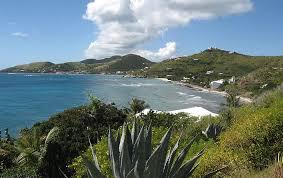The US flags a most convenient way to boost its shipping fleet
In the early days of the Houthis’ Red Sea denial, the rebel militia, known to be working with Iran, professed to be attacking ships with connections to Israel. It was soon discovered, however, that trying to figure out which ships were linked to which countries was harder than sighting them up for missile strikes.
Before even the tangled business of ownership comes into play, a ship might be built in China, managed in Singapore, on charter to a German liner, with a crew of Filipinos. In this context, some tenuous business link to Israel was inevitable for almost any ship.
This prompted remarks from a frustrated Lars Jensen, Vespucci Maritime CEO, that as well as the UK, the targeted bulk carrier Rubymar had links with Belize, whose flag it flew, the Marshall Islands, Lebanon, Honduras, UAE, Bulgaria, and Saudi Arabia.
“It serves as a good illustration as to the futility of trying to assign a single ‘nationality’ to a vessel,” Mr Jensen said. “Shipping is simply too global and complex for that approach to have much meaning.”
Moving freely about in the world and, irrespective of location, having the power to decide which country’s laws to follow, and whose police would come after you if you broke them; for now, even the loftiest billionaires could but dream of such free rein for themselves. But for a ship, it is another matter. Vessels can fly the flag of a country that no-one involved in its ordering, construction, or operation need ever have visited.
The practice of flagging your ship in a country with business-friendly provisions has been given the moniker ‘flag of convenience’, or FOC. But while flagging a vessel in a country that does not intend to impose taxes on it is even easier than opening a Bermuda bank account, there is a lot more than money at stake in case of a ship registry.
A flag provides a regulatory framework to be applied to the ship, in matters of labour and crewing, technical specification, safety, and pollution. It also pledges a degree of protection, both legal and, in some cases, military.
By contrast, the US flag is a special case. A protectionist local content law, the Jones Act, strives to keep US ships owned, built, and crewed by Americans. A high cost of entry for the US market does not sit well with globalised maritime players, and the US-flagged fleet has been contracting for decades, dwindling to fewer than 200 ships.
For the Trump administration, this is a matter of some embarrassment, and something must be done.
Tariffs and US Trade Representative (USTR) port call levies on foreign ships would, it hoped, give the US the means to reinvigorate US shipyards and build a new US fleet sufficiently big and beautiful for the modern age.
But a separate plot is under way. One group is hoping to persuade the administration to open a new US flag of convenience, the proposed US Virgin Islands (USVI) registry. Vessels would call freely at US ports, while decisively undercutting the US flag.
It is the second attempt to get this flag started, following an attempt in 2022 which seemed to be shunned by the pro-union Biden Administration.
“The initiative makes sense and is in alignment with the Trump administration’s initiative to strengthen American shipping,” Virgin Islands Governor Albert Bryan told Reuters. “We are very excited and look forward to being able to support this initiative to its fruition.”
The scheme’s advocates will not be reassured by a new Federal Maritime Commission (FMC) investigation into FOCs announced this week. Opening a 90-day public comment period, FMC is looking for “unfavourable flagging laws, regulations, and practices” that, from a US point of view, “endanger the efficiency and reliability of the ocean shipping supply chain”.
Not unexpectedly, following the tantrum at MEPC 83, this has involved lashing out at the International Maritime Organization (IMO), which is supposed to agree on a law of the sea (UNCLOS) to provide a minimum code of ethics for even the most feckless flags to follow. IMO “has not brought about meaningful change nor deterrence to what is clearly a growing problem” argues the FMC. Instead, global flag administrations have been encouraged to participate in a “race to the bottom”.
The commission added: “By offering to register and flag vessels with little or no oversight or regulation, countries may compete against one another to gain revenue from the associated fees, and to minimise the expenses associated with inspecting vessels, and ensuring compliance with appropriate maintenance and safety requirements.”
The US has determined that it must have its own shipping fleet, but faced with two opposed strategies for achieving this, the Trump administration must now choose between doing it the hard way, or the way of convenience.

